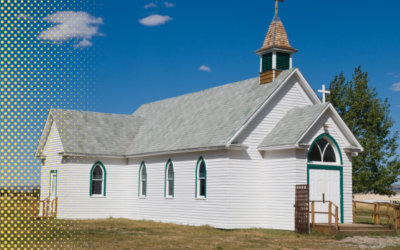It’s a Friday night, and the church basement is full of teens eager for pizza, games, and socialization. However, these young people represent grades from middle school through near-graduating seniors. What Bible devotions will reach such a wide age range? What group games will be fun for all participants, but also avoid trampling younger students? How should you handle the resentment of the junior who has to share activity time with his seventh-grade brother? And how will the budget possibly manage enough food to satisfy the crowd?
Many youth leaders, especially in recent years, find themselves faced with the task of combining younger and older student groups. This might be due to church size, staff and volunteer availability, or practicality purposes, but it can certainly present challenges. There are many ups and downs in managing youth groups regardless of numbers or ages, but even more so when combining junior and senior high.
However, with appropriate strategy, pulling groups together can successfully benefit all involved. Operating youth ministry in a setting that combines junior and senior high groups is a blessing that encourages spiritual health and camaraderie, provided it is approached with attention to the needs and maturity of all participants.
Blessings and Benefits
There are organizational and relational advantages to combining ages for youth ministry. From a practical standpoint, placing junior and senior high students together can ease the stress of event planning, especially if fewer volunteers or leaders are available. It also facilitates things for parents who have multiple children across age groups. Combining groups can also provide built-in helpers, as older students can assist with events.
On a social level, working collectively with middle and high schoolers can form positive bonds, as younger and older teens develop into a cohesive unit as a group. Ideally, junior high students will appreciate the experiences they have and want to continue with the youth program as they grow. Placing age groups together can also offer mentorship opportunities. Whether or not students have siblings in the church, they can feel the comfort of having a “brother” or “sister” through friendship. Interpersonal connections can develop and thrive in a shared setting.
Cautions and Challenges
Working with a potential range of 11-year-olds through near adults does present several logistical challenges. Older teens might not always be thrilled to spend time hanging out with younger ones, as there can be significant differences in maturity level. Sometimes older siblings might desire time away from their brothers or sisters, as well. If groups are together for Sunday School or Bible class, it can be tough to select topics that are relevant and applicable to a wide age range. There are some discussions that just cannot be had with a mixed group.
It is also difficult to plan activities that are enjoyable and appropriate for teens with such age gaps. What excites a seventh grader might not seem appealing to a high school senior.
Recommendations to Remember
As we work with with combined groups, we need to remain mindful of appropriate strategies for selecting activities and studies. If possible, try to occasionally host events for junior and senior high students to be separate, if they are usually together. Even if most gatherings are combined, specifically arranging a few to be split will provide some privacy for each age group.
Additionally, consider splitting the levels for Bible study and devotion time. Middle and high schoolers are at very different places in their life experiences and developmental levels. They need to be able to address and discuss their unique needs at their level. If groups must remain combined for Bible studies, be mindful of the materials used. Seek resources that can speak to a range of ages and be appropriate for students’ needs. Topical studies on broad elements such as prayer or friendships are helpful. Examining a specific book of the Bible can also be an option that covers multiple maturity stages.
Intentional Ideas
Incorporating innovative techniques with combined youth groups can promote the success of group dynamics and make sure all participants have a positive experience. Students of all ages can benefit from working with others outside of their usual level. Consider taking advantage of age differences by using older students to mentor and assist with younger ones. High school students can take on leadership roles, even taking turns to lead Bible study sessions or deliver devotions. Youth leaders can assist students to hone their organizational and mentorship skills, so that teens can in turn mentor their younger peers.
If enough students in varied age groups are participating, junior and senior high schoolers can be paired together for an “adopted sibling” close connection, similar to an elementary school “reading buddy” program. If these pairings would be sparse or impractical, think about using older members of the congregation to connect with youth as mentors or adopted grandparents. These pairings should include accountability and prayer partnership.
In planning events, it is essential for leaders to be intentional to develop ideas that include team-building activities and opportunities for interaction across ages. It is also important to communicate regularly with families of students, explaining how and why the youth group is functioning as it is. However you choose to organize and arrange things, monitor group dynamics and relationships and be prepared to constantly re-assess how effectively the ministry is reaching students.
Carefully developed and blanketed in prayer, programs that combine junior and senior high school students offer opportunities for teens to grow in relationships with one another, with adults, and with God.










0 Comments